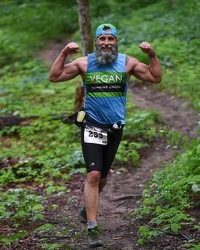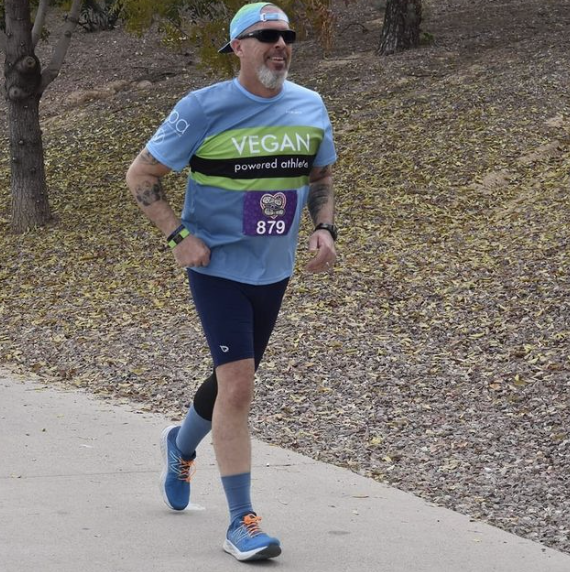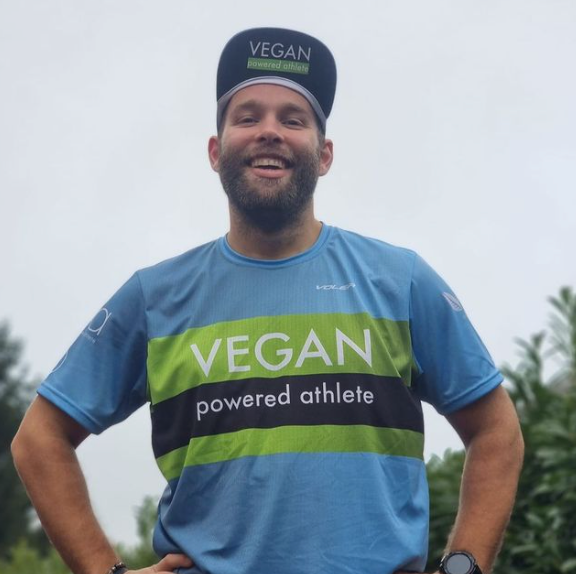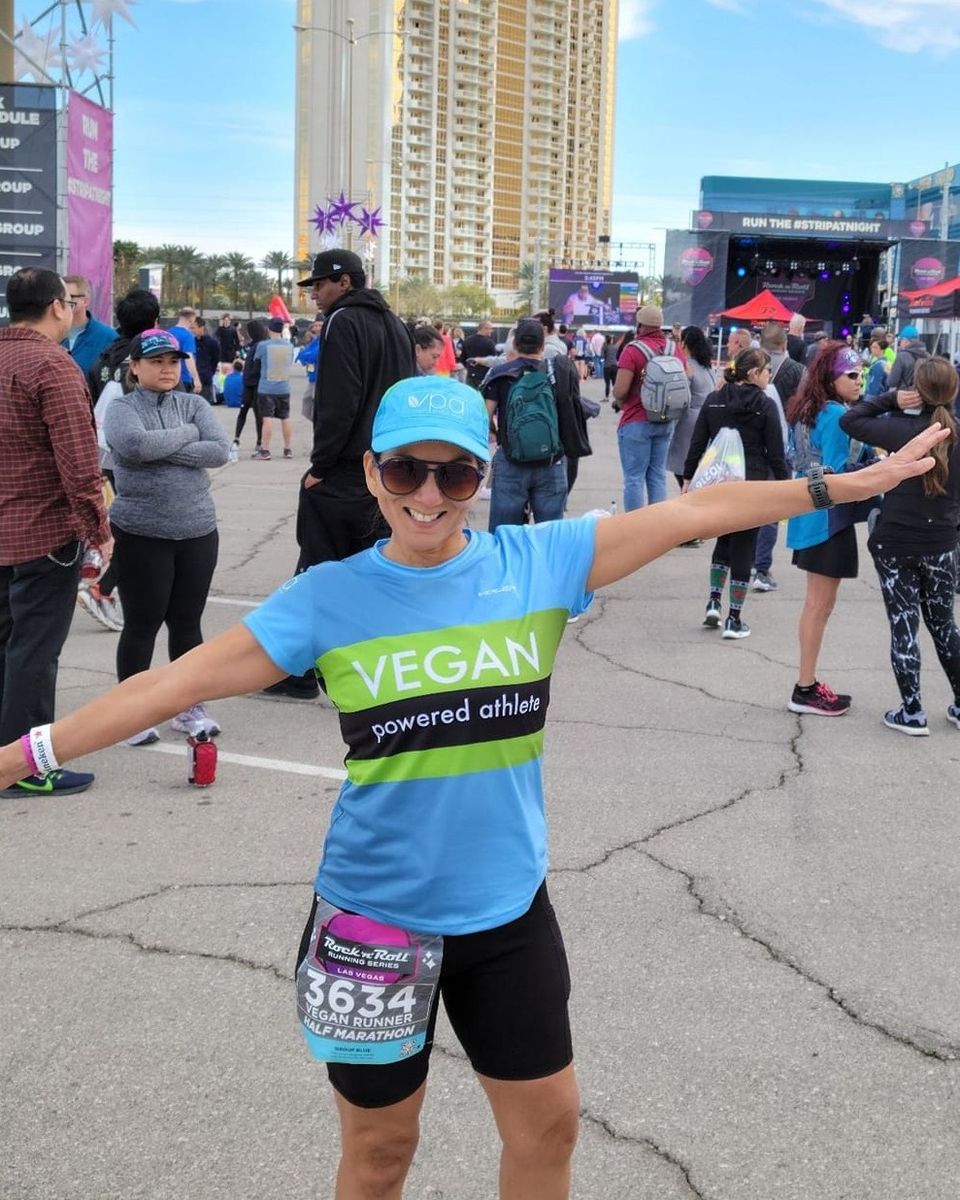
The first and most often question I get from athletes and non athletes alike when they find out I am Vegan is “How do you get enough protein?” Followed up with “What do you eat?” My answer is usually in a form of a question….”Do you like broccoli?, Spinach? Seeds? Beans?” Followed up with, “Did you know Broccoli, per calorie has more protein than beef?” Most people at that point usually look at me with a blank stare and with their mouth open. Yes it is true and Broccoli is packed with Amino Acids, Fiber, Vitamin B6 to improve your mood and one of the best vegetables linked to fighting cancer. Same for Spinach. Looking at it from a calorie perspective, 100 calories of ground beef has 10 grams of protein while 100 calories of fresh baby spinach has 12 grams. Per calorie, spinach does have more protein than ground beef. Percentage-wise, spinach is 30% protein while ground beef is 40% protein (and 60% fat). So It is not as hard as you think! There is a handful of other green vegetables when put up side by side to beef, are superior in their protein content, vitamins, and minerals.
Athletes who compete in endurance sports, such as running long distance or participating in triathlons, are understandably focused on ensuring they are meeting all their nutritional needs. Not only do athletes need to maintain a very healthy diet during training and competition, but they also need to ensure they are getting the right fuel into their bodies during and after their training. A combination of a healthy diet and proper training is the only way an athlete can sustain and improve their athletic performance, endurance and strength. That is why a Plant Based Diet is superior and ideal for an endurance athlete.
The challenge of eating right to fuel your body is hard enough when a person does not have any dietary restrictions, but take out the “Traditional” sources of protein, such as eggs, poultry, meat, dairy and fish are off the table, and many think it is impossible. This means vegans have to look elsewhere for the protein they need to build, maintain and recover their muscles, but it is not as hard as you think!
There are many other options to consider other than leafy green vegetables. With that in mind, here is a look at the top seven sources of protein for vegan athletes who are looking to maintain the right type of diet during their training and competition (Not in any particular order).
- Lentils
They are a good source of potassium, calcium, zinc, niacin and vitamin K, but are particularly rich in dietary fiber, lean protein, folate and iron. A half cup of lentils contains around 9 grams of protein, while it also has 15 grams of fiber and 20 grams of carbohydrates. Lentils are inexpensive, readily available, very easy to cook and incredibly tasty.
- Tofu
There was a time when people mocked tofu for being a boring addition to their diet, but now it is one of the most widely used sources of protein among vegetarians and vegans. The reason tofu is so popular is because of how easy it is to incorporate into recipes of various tastes and styles. And you can also choose between firm and soft tofu, depending on whether they prefer a creamier or chewier texture to their food. The firmer the Tofu, the more the protein. Tofu contains around 10 grams of protein per cup. Tofu is made from Soy Beans which I have also added below.
- Black Beans
Like other legumes, such as peanuts, peas, and lentils, black beans are prized for their high protein and fiber content. They also contain several other key vitamins and minerals that are known to benefit human health making them perfect for any vegan athlete. They are also not as starchy as other beans. A half cup of black beans contains roughly 8 grams of protein.
4. Quinoa
Known for its high protein content, and with good reason. This seed (yes, it's technically a seed—not a grain) contains eight grams of protein per cup. Plus, it's considered a complete protein, meaning it packs all nine essential amino acids your body needs. Full of fiber, iron, magnesium, and manganese, Quinoa is a terrific substitute for rice and it’s versatile enough to make muffins, energy bars, and burgers.
- Soy Beans
Full of fiber and protein, soy beans are a wonderful addition to any lunch or dinner dish. They have 12 grams of protein in each cup, while they also contain an amino acid that helps boost your metabolism. Edamame is a high quality, complete protein, similar to Quinoa and provides all the essential amino acids your body requires on a daily basis
- Hemp Seeds
These little seeds are known for their blend of omega-3 and omega-6 fats, high fiber content, and quality amino acid profile. Hemp seeds are also high in magnesium, a mineral that helps with relaxation, blood sugar control, blood pressure, and potentially osteoporosis. One of the reasons vegans love hemp seeds is because you can add them to almost anything without even noticing they are present in the dish. For instance, you can add hemp seeds to smoothies, your morning cup of oatmeal, soup or stews and even in your pasta. With three tablespoons-worth giving you 10 grams of protein.
- Chia Seeds
Much like hemp seeds, chia seeds are an easy and efficient way to get a ton of protein into your diet. You can add chia seeds to your morning cup of cereal, oatmeal or smoothie and not even notice they are there. The reason Chia seeds are so beneficial is due to them being rich in fiber, omega-3 fats, protein, vitamins and minerals. With five grams of protein in two tablespoons of chia seeds, they are an essential part of any vegan athlete’s diet.








